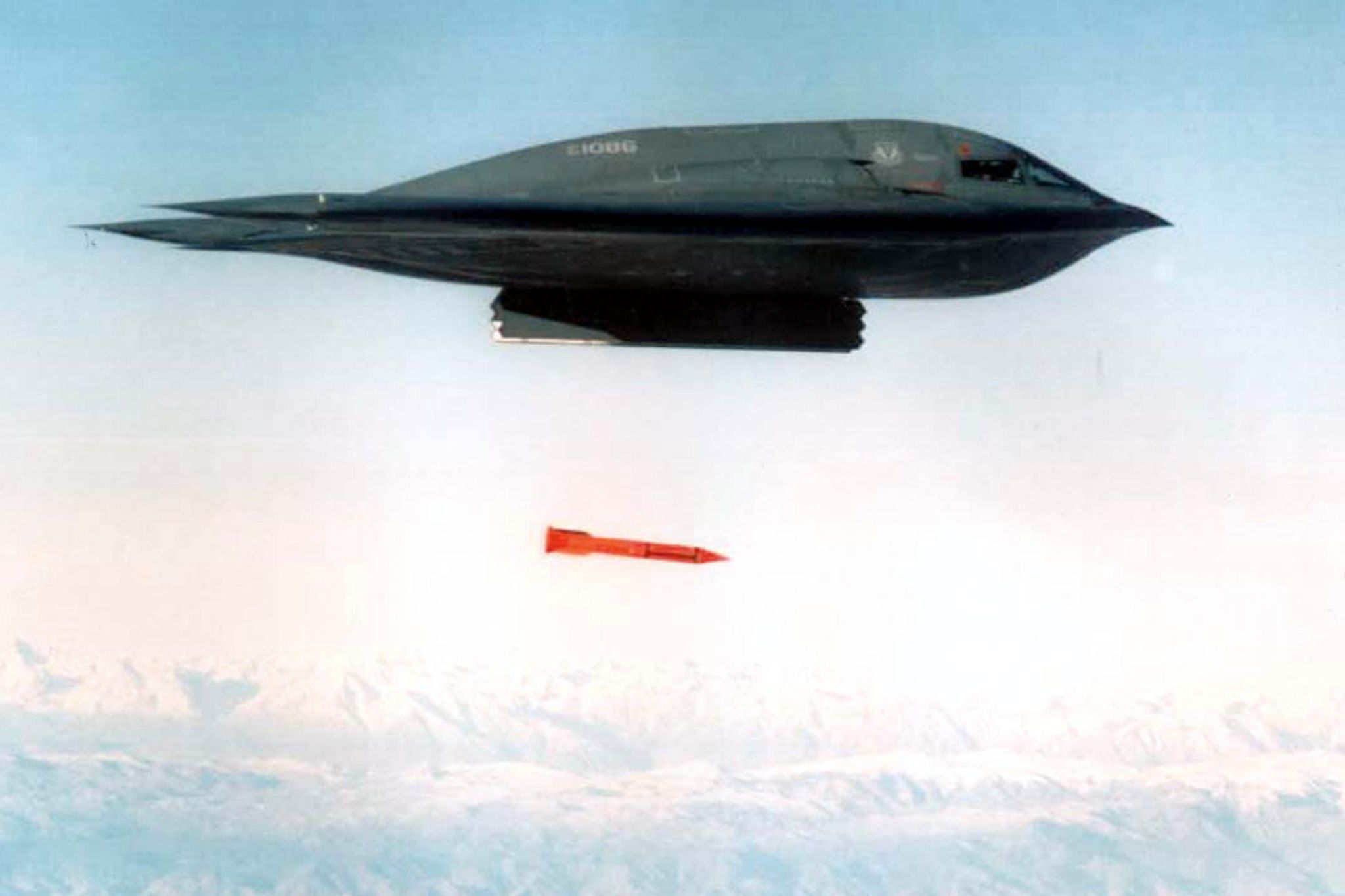
Russia is calling on the U.S. to pull back nuclear weapons that were deployed in European ally states, boasting that Moscow has already done its part for nuclear disarmament since the end of the Cold War, state news agency RIA Novosti reported.
"Russia has withdrawn all of its nuclear arsenal inside its national territory," Mikhail Ulyanov, head of the arms-control department at Russia's Ministry of Foreign Affairs, said on Monday. "We think that the same should also have been done by the American side."
According to Ulyanov, the weapons in question number "around 200 aerial bombs." He quoted ex-U.S. officials who claimed that ongoing upgrades to air-dropped bombs could minimize hypothetical civilian casualties.
Read more: Russia and the Pentagon clash over Donald Trump's boast of victory over ISIS
The arms Moscow is so aggrieved by, said Konrad Muzyka, armed forces analyst at Jane's IHS Markit, are B61 bombs deployed at bases in Belgium, Germany, Italy, the Netherlands and Turkey. The deployment is part of a Cold War–era nuclear sharing program whose modern existence has been the subject of debate a handful of times.
Some European NATO air forces are trained and equipped to deliver those weapons "should a political decision ever be taken to do so," a NATO official told Newsweek; however, the technology does not belong to the host countries, and the U.S. "maintains control of the associated nuclear weapons at all times."
Costs and domestic political debates about the risk of retaining the capabilities aside, the weapon has prompted questions about its relevance on the modern battlefield. It is an old-fashioned, unguided, gravity bomb: still very potent if carrying nuclear warhead, but a risky tool to deploy. The idea behind retaining the capabilities, said Muzyka, is the threat of a nuclear response in the instance a U.S. ally is attacked, rather than the belief that those bombs are the best way to do battle.
"Are air gravity bombs outdated? Well, NATO believes that they still do their job of providing nuclear deterrence, and that's most important," Muzyka said. But a nuclear-tipped ballistic missle or a cruise missile fired remotely offer "drastically enhanced capability," he admitted.
Russia, whose only military ally to the West is Belarus, has withdrawn nuclear weapons within its own territory. "The westernmost-located Russian nuclear storage facility is based in the Kaliningad Oblast," said Muzyka, referring to the sea enclave that borders Poland and Lithuania. The territory has acquired considerable Russian firepower, including anti-aircraft weapons.
Moscow's decision to remind about the Cold War bombs could be less about their capabilities and more about the current jostling over not retaining old nuclear technology but rather developing new nukes that could fly in the face of established agreements.
"Why is Russia mentioning this? Well, perhaps they are seeking to enter negotiations with the United States about a new arms control treaty, and this could be one of the conditions," Muzyka explained.
The U.S. has repeatedly accused Russia of designing a missile that violates a landmark deal known as the Intermediate-Range Nuclear Forces Treaty, signed 30 years ago. Because of the deal both countries pledged to eliminate intermediate range missiles in Europe, meaning neither U.S. nor Russian missiles would be capable of triggering a heavy-duty shootout over the continent's soil.
U.S. officials have repeatedly reported that Russia was developing missiles and tweaking existing capabilities to once again have European countries within close range, while Russia has accused the anti-missile shield the U.S. is deploying in Poland and Romania of violating the deal.
The decision to discuss aerial bombs in Europe in general terms could be Russia's "chipping away" at European NATO allies who may be nervous about stoking the debate around U.S.-Russian nuclear jostling, said Tom Plant, director of the proliferation and nuclear policy program at London's Royal United Services Institute.
"It follows the Russian strategy to try and split up NATO," Plant says. "This may be a small rock to throw, but Russia keeps throwing rocks."
Hosting foreign nuclear weapons ignites debate in European countries, especially Germany, where the former leftist coalition partners of Chancellor Angela Merkel have spoken out against it: "Russia can afford to throw a lot of mud. You see, the U.S. has to manage allies in a way that Russia doesn't."
Uncommon Knowledge
Newsweek is committed to challenging conventional wisdom and finding connections in the search for common ground.
Newsweek is committed to challenging conventional wisdom and finding connections in the search for common ground.
About the writer
I am a Staff Writer for Newsweek's international desk. I report on current events in Russia, the former Soviet Union ... Read more
To read how Newsweek uses AI as a newsroom tool, Click here.








